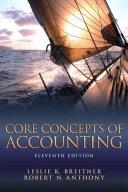Question
ACC 675Purchaser CompanyFall 2020 On January 21, 2019, Purchaser Company completed the purchase and took control of Acquired Company for a cash purchase price of
ACC 675Purchaser CompanyFall 2020 On January 21, 2019, Purchaser Company completed the purchase and took control of Acquired Company for a cash purchase price of $5,000,000. You are assigned the responsibility for determining the appropriate allocation of the purchase price to determine the valuation of the acquired assets and liabilities and the recognition of any goodwill. The following page reports the most recent pre-acquisition balance sheet of the company. You have gathered the following information regarding Purchaser's motivation for the acquisition and its post-acquisition plans as well as additional information concerning Acquired Company: 1. Acquired Company was a competitor firm in the same industry as Purchaser. Acquired Company has two well-developed two brands (both trademarked) of products that competed well against Purchaser's product lines. Purchaser plans to phase out the production and marketing of one of the brands and develop the second brand into a market segment that would not directly compete against Purchaser's products. 2. Acquired Company is the lessee of several regional warehouses that are accounted for as operating leases (in accordance ASC 840). Some warehouses are located in areas that duplicate the service areas of existing Purchaser facilities. Purchaser plans a post-acquisition study to determine which leases will be continued, terminated, or sub-leased. 3. Acquired Company has a backlog of unfilled orders for the products under the brand Purchaser plans to continue. 4. Acquired Company has a strong research and product development department. Several of the projects are directed toward the product line of the brand Purchaser plans to continue, some relate to the brand Purchaser plans to phase out, and others complement the research activities of Purchaser. 5. The deferred tax asset recognized by Acquired Company relates to operating losses the company is allowed to carry forward. Purchaser Company will be able to utilize the loss carryforwards on its post-acquisition consolidated tax returns. 6. Eight years ago, Acquired Company hired a new CEO under a 10-year contract. The contract required Acquired to pay the CEO $1 million if Acquired was purchased by another entity before the contract expired. The CEO is still employed at the acquisition date and will receive the additional payment under the existing contract. 7. Purchaser Company does not plan on sell off any of Acquirer's production assets but will either use them to expand production of the surviving brand's products or convert them for production of Purchaser's products. 8. Purchaser plans to utilize all the raw materials on hand at the time of purchase, complete all work in process, and redirect purchasing and production to the surviving brand. 9. Purchaser incurred $500,000 of professional fees associated with the acquisition. REQUIRED: List the assets and liabilities that should be recognized and indicate: 1) how the item should be valued in accounting for the acquisition, 2) if the item is measured at fair value - how the fair value would be determined - be specific in explaining the methodology to be used, 3) for assets and liabilities on Acquired's balance sheet that will not be recognized in the acquisition explain why, 4) any items not on Acquired's balance sheet but should be recognized explain why. Where necessary, provide the appropriate citation from the FASB's Codification to support your decision. In completing the assignment specific dollar values are not expected. The following template should be used in completing the assignment. Rows should be added as needed.

Step by Step Solution
There are 3 Steps involved in it
Step: 1

Get Instant Access to Expert-Tailored Solutions
See step-by-step solutions with expert insights and AI powered tools for academic success
Step: 2

Step: 3

Ace Your Homework with AI
Get the answers you need in no time with our AI-driven, step-by-step assistance
Get Started


